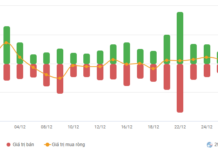William Haigen, the author for Business Insider, shared his story of giving up using smartphones for a year and the challenges he faced. He realized that not having a phone in hand caused more inconvenience than he thought. Here is Haigen’s sharing.

Great at first
When my iPhone suddenly broke 12 months ago, my reaction at that time made me surprised.
I became an outsider to the social media flow, barely able to contact anyone, but instead of feeling anxious about missing out on something (FOMO), there was a complete sense of relief flowing through my veins.
Like PC Mag’s statistics, I, too, was among the 67% of young people who tried and failed to limit their phone usage.
I downloaded all the personal productivity apps, tried setting rules and systems, as well as reading books on how to give up bad habits, but it was all in vain. No matter what I did, on average, I still spent three hours and picked up the phone dozens of times every day.
Thinking back to Steve Jobs’ famous iPhone launch event, his passionate vision seemed to be completely opposite to my frustration with this weird device in my pocket that I couldn’t put down.
So when my phone broke, instead of rushing to get it fixed, I decided to make the most of this feeling. I put the broken phone in a drawer and bought a $30 Nokia.
Within a few weeks of living without a smartphone, the impacts began to become clear. The fog stimulating my mind too much began to dissipate and I began to appreciate the little things.
I realized I could go on long journeys with just my thoughts as my companions. I didn’t need to constantly update on social media and the fear of missing out turned out to be not that serious.
The most noticeable thing I realized is that being bored without a phone is now normal, even good.
In fact, research has shown that boredom is a necessary component for a healthy and creative brain. A 2014 study found that, compared to a group of people who were immediately asked to copy numbers from their phonebook after 15 minutes, those who were asked to copy numbers from their phonebook after 15 minutes were significantly more creative.
Indeed, many studies have shown a correlation between smartphone use and decreased creativity.
I feel more focused, more productive, more creative, and healthier. I have more time to read for pleasure. When I’m reading, I don’t want to check emails or messages – I can immerse myself in books the way I haven’t done since I was a teenager, long before smartphones appeared.
If all of this sounds incredible, it is. Below are the reasons why I will go back to having a phone.

Life without a smartphone is really difficult
Although mental health and productivity have improved, the reality is that living in a world where everyone has a smartphone and I don’t is a nightmare.
First of all, getting around is very difficult. I have lost count of the times I have been late or missed an appointment because I didn’t understand the map I drew before leaving home.
And although FOMO may be an irrational fear, sometimes, missing out is really bad. I have no idea what my friends and family are doing. WhatsApp only works if you have a smartphone, so friends and family who don’t use Facebook Messenger are practically unreachable.
There are also many, many accumulated inconveniences over time. I can’t listen to my own music at the gym, can’t do online banking, or let friends know I will be late due to traffic.
If I want to listen to a podcast while cleaning my apartment, I have to position the laptop at just the right place for my ears to be within range of the sound.
Fortunately, one thing I learned during a year off from using a smartphone is that I can live without having the phone on all the time.
I have become quite accustomed to not turning on or carrying my phone with me all the time. My job doesn’t require me to answer messages immediately and I don’t have children, so carrying a phone all the time is unnecessary.
Whenever I get my repaired iPhone back, I will turn it off regularly or at least put it on airplane mode. Connecting with society has its advantages, but being always connected affects our mental health, and at least for me, it’s unnecessary to trade off something magical.
I want to use the phone for its intended purpose, as a helpful tool, rather than a source of worry and excessive stimulation.




































